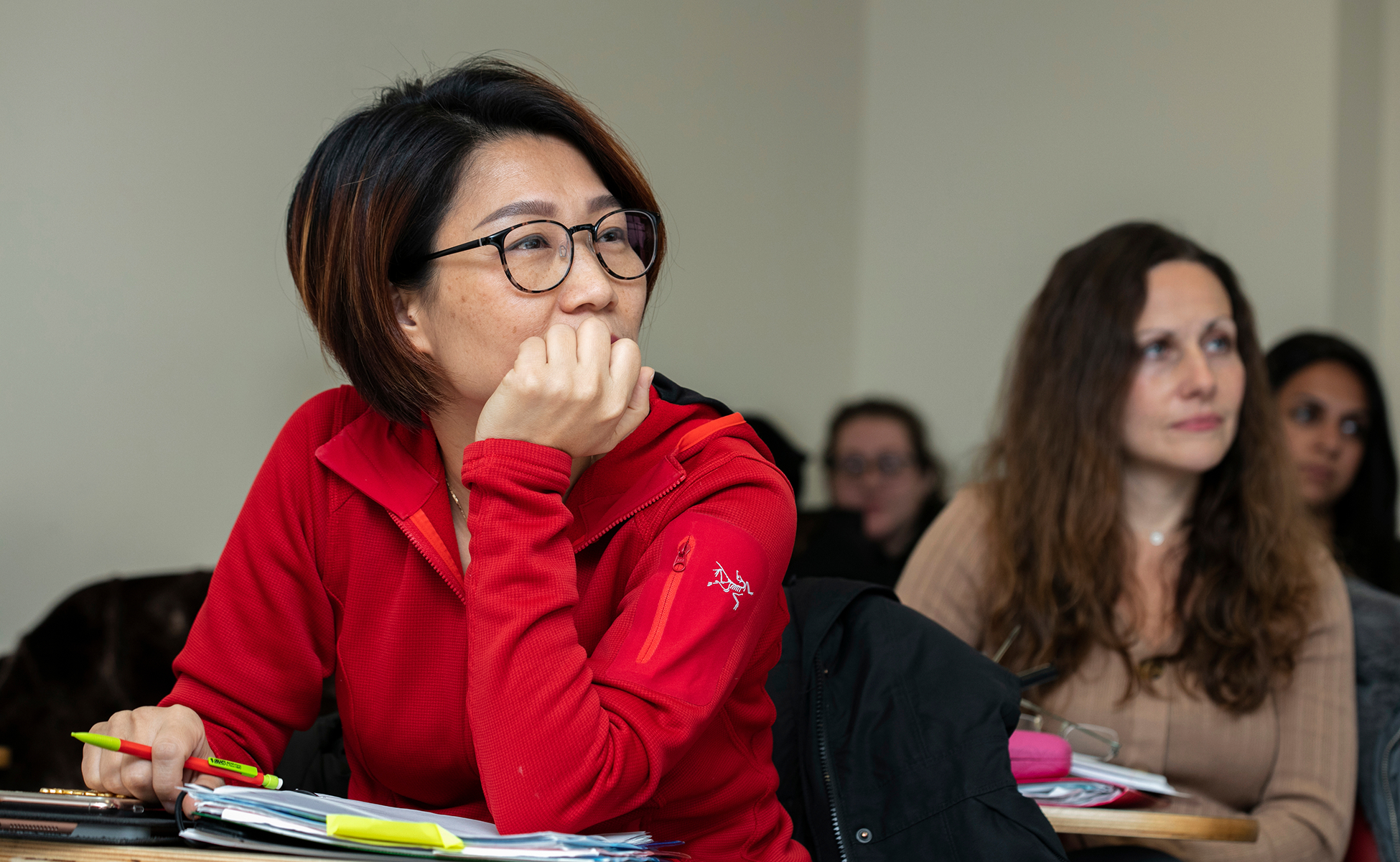The Master of Social Work (MSW) program offers in-depth training in clinical social work, through a comprehensive classroom curriculum and varied fieldwork experiences. With a strong emphasis on underserved populations and roots in New York City, you’ll gain exposure to a broad spectrum of communities and cultures, and graduate ready to make a tangible difference in people’s lives and the world around you.
As a student in the MSW program at Touro University Graduate School of Social Work (GSSW), you will gain a solid foundation in social policy, research, and practice. The program is designed to equip you with the knowledge and skills necessary to empower individuals, families, and communities to overcome social injustices and reach their full potential.
MSW Coursework and Curriculum
The 65 credit MSW curriculum can be completed in two to four years, with a 16-month accelerated option, and covers a range of topics relevant to social work, including human behavior and the social environment, social welfare policy and services, research methods and evaluation, clinical social work practice, and more. You will learn through a combination of classroom instruction, field education, and experiential learning opportunities, giving you the opportunity to apply what you've learned in real-world settings.
You start with foundation courses, which are crucial to understanding how social work operates. You’ll learn about social work’s person-in-environment perspective, which includes theories about how surroundings and social interaction shape behavior, and the fundamental skill of transforming a basic one-on-one conversation into an opportunity for healing.
As you advance you can take courses on different therapeutic approaches, such as cognitive-behavioral treatment, couples and family therapy and group work. And you’ll have the opportunity to specialize in specific populations, like military veterans, recovering addicts, the elderly, or troubled teens.
Field education starts in an agency setting and you will begin to see how resources get allocated. You’ll start to help assess clients’ circumstances and ensure they’re connected with the necessary services. As you progress, you might be working with couples and families and experience how that differs from individuals or larger groups; or you might be working with clients dealing with divorce and infidelity and putting into practice intervention strategies that take into consideration a person’s unique experiences.
Throughout your field education, you will work with experienced professionals in a variety of settings, such as government agencies, healthcare organizations, schools, and community-based organizations. You will have the opportunity to apply your knowledge and skills in a practical setting, while receiving supervision and guidance from experienced social work practitioners.
Flexible & High Touch
We pride ourselves on being flexible and high touch. The courses in our traditional track have evening and weekend hours, and you can take almost half your classes online if you wish. Or you can take you classes 100% online in our online track.
Whichever option you choose, you can expect a supportive experience. We emphasize personalized and interactive learning experiences in the classroom to help you in developing your social work skills and values. That means smaller class sizes, frequent communication with faculty and advisors, opportunities for individualized attention and support, and immersive fieldwork experiences.
Engaging face-to-face is an important part of your social work education and field education hours, for in-person and online students, are fulfilled through internships in your own community with live client interaction.
What sets our online MSW program apart?
You can expect the same support in the online program as you get in person. In addition to online discussion boards and video content, and the opportunities to interact live with your instructor and peers, we use AI avatars as part of your learning. For example, if you get an assignment to do a lethality assessment on a client showing signs of suicidality and you’re going down the wrong path in your AI client interactions, the AI client will redirect you in the moment. After, the instructor will see the report and meet with you to make sure you’re on track and developing the knowledge, skills, and relationships necessary to become an effective and compassionate social worker.
Career Opportunities
Upon graduation, you will be prepared to pursue a variety of career opportunities in social work, including working in government agencies, healthcare organizations, schools, and community-based organizations. You will also be eligible to pursue licensure as an LMSW, which will open up additional opportunities for career advancement and professional growth.


